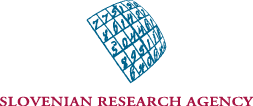Autologous immunohybridomas and advanced treatment of stage II and III triple-negative breast cancer
Code:
J3-3062
Range:
01. October 2021 - 30. September 2024
Range:
0,35 FTE
Leader:
Matjaž Jeras
Field:
3.01 Medical sciences/ Microbiology and immunology
Research Organisation:
https://cris.cobiss.net/ecris/si/en/project/18705
Researchers:
https://cris.cobiss.net/ecris/si/en/project/18705
Content:
https://cris.cobiss.net/ecris/si/en/project/18705
Abstract:
Breast cancer (BC) is a significant and common disease with a negative effect prevalently on women health, and the second most deadly type of cancer in females. BC is a highly heterogeneous disease due to its diverse morphological features, variable clinical outcomes and responses to currently available therapeutic options. Due to its high degree of heterogeneity, BC cannot be viewed as a single disease, but is rather classified in three subtypes that are more homogeneous, i.e.: hormone (estrogen and progesterone) receptor positive, Her2-positive and triple-negative BC (TNBC), which is characterized by the lack of estrogen and progesterone receptors and HER2 protein expression. TNBC accounts for approximately 10 – 15 % of all BCs and is characterized by aggressive behavior, a trend to early relapse and metastatic spread to lungs, liver and central nervous system, as well as by poorer survival. In a majority of TNBC patients, neoadjuvant chemotherapy is the standard treatment followed by surgery and radiotherapy. In approximately 30 % of TNBC patients, complete remission (CR) is achieved with neoadjuvant therapy, which correlates with excellent prognosis. On the other hand, more than 50 % of patients without pathologic complete remission (pCR) develop distant metastases, the majority of them within 2 years after diagnosis. The median overall survival (mOS) for metastatic TNBC is poor (one year only). As current basic treatment options in both, early and metastatic TNBC are limited to chemotherapy, new effective therapies are urgently needed for better management of the disease. Immunotherapy with immune checkpoint inhibitors, which interrupt tumor-based suppression of specific anti-tumor immune cell responses, became one of the promising strategies in TNBC treatment, being able to improve the survival rate of these patients. In numerous clinical studies evaluating the use of monoclonal antibodies inhibiting immune checkpoints (CTLA-4, PD-1 and PD-L1) in TNBC patients, atezolizumab (monoclonal antibody against PD-L1) proved to be the most effective, therefore it was introduced into the first line treatment of metastatic or inoperable locally advanced TNBC. As TNBC is a proven immunogenic type of cancer, we intend to develop and clinically test autologous immunohybridoma (aHyC) vaccines, made of electrofused monocyte-derived dendritic cells (DCs) and irradiated tumor cells (TCs), for each eligible patient. In this way we aim at equipping DCs, being the most effective antigen-presenting cells, with a whole array of tumor expressed antigens that would, following their subcutaneous delivery to areas of tumor proximal lymph nodes, evoke and boost specific anti-tumor T-cell responses. The vaccines will be administered to eligible stadium II and III TNBC patients, 3-times every 2-3 weeks, following the termination of the first line chemotherapy of metastatic disease. Along with that, we will take advantage of optimal positive effects of each particular chemotherapeutic applied, on tumor microenvironment, weakening its immunosuppressive impact on anti-tumor immune effector cells. Additionally, we intend to (at each vaccination), modulate the immune system of patients with unspecific adjuvant proinflammatory (Th1) stimulation, for example by using alloantigens, already previously tested by us in a clinical setting, thereby increasing the efficiency of the pre-existing, as well as de novo aHyC-induced anti-tumor immune responses. The primary objective of our research will be to examine the feasibility and safety of aHyC vaccination in stadium II and III TNBC patients, and the secondary to determine their progression-free and overall survial.
Phases:
https://cris.cobiss.net/ecris/si/en/project/18705
Bibliographical references, arising directly from the implementation of the project:
https://cris.cobiss.net/ecris/si/en/project/18705
Financed by:

Research projects (co)funded by the Slovenian Research Agency.
Changed: 14. March 2022